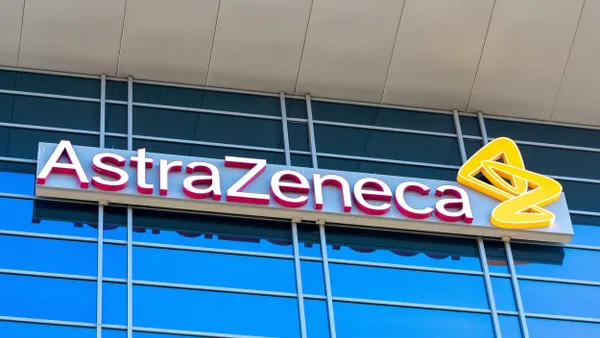Today, a brief rundown of news involving Gilead Sciences and Arvinas, as well as updates from Chugai Pharmaceutical, Recursion Pharmaceuticals and Dizal Pharma that you may have missed.
Gilead Sciences on Wednesday said it would supply its HIV prevention drug lenacapavir “at no profit” to low and lower-middle-income countries through a three-year agreement with the Global Fund to Fight AIDS, Tuberculosis and Malaria. The Global Fund will prioritize country access based on HIV epidemiology and available resources. The move builds on previous steps taken by Gilead, including its agreement in October to license rights to manufacture and supply lenacapavir in many of these countries. The new deal will provide enough doses for up to 2 million people to access the drug until those licensed generic versions are available. The twice-yearly injection was approved by the Food and Drug Administration for HIV pre-exposure prophylaxis last month, which one analyst said could “redefine the PrEP market.” — Delilah Alvarado
Arvinas CEO John Houston will step down following the search and appointment of a new CEO, the company said Wednesday. Houston joined in 2017 as head of R&D and chief scientific officer, but was promoted months later to CEO. Two years ago, he became chairman of the board, a position he’ll continue in after departing the CEO post. According to Arvinas, Houston played a pivotal role in advancing its “PROTAC” drugmaking technology, including the drug vepdegestrant, for which it recently unveiled mixed Phase 3 data. — Delilah Alvarado
Chugai Pharmaceutical said Monday it will pay up to $250 million to Singapore-based Gero as part of a collaboration to develop antibody drugs to treat aging-related diseases. Under the deal, Gero will identify biological targets active in aging-related diseases using its discovery technology, while Chugai will have exclusive rights to create, research, develop, manufacture and commercialize drugs emerging from Gero’s work. Payments to Gero will be based on development and sales milestones, and Chugai would additionally owe royalties to Gero on sales of any launched drugs. Chugai is majority owned by Roche. — Jonathan Gardner
Recursion Pharmaceuticals is paying $7.5 million upfront for shares in partner RallyBio and up to $25 million in total to purchase rights to jointly developed treatments for the genetic disorder hypophosphatasia. RallyBio began working with Exscientia in 2019 to research drugs targeting ENPP enzymes, a collaboration which Recursion inherited when it acquired Exscientia in 2024. Recursion has been retrenching, halting development of two drugs and pausing a third in May, followed by job cuts in June. With the agreement, Recursion gains control of a drug called REV102, and a backup molecule. RallyBio said the upfront payment will help fund operations through mid-2027, extending its runway by around a year. — Jonathan Gardner
The Food and Drug Administration granted accelerated approval to an oral lung cancer drug developed by China-based Dizal Pharma that could compete with Johnson & Johnson’s antibody drug Rybrevant. The drug, called Zegfrovy, is approved to treat people with non-small cell lung cancer that has an epidermal growth factor receptor exon 20 insertion mutation and whose disease has progressed following chemotherapy. It will be the only oral drug on the market to treat those patients following withdrawal of Takeda’s Exkivity, which failed confirmatory trials. People with the EGFR exon 20 insertion mutation, which represent a small percentage of NSCLC patients, often are resistant to other EGFR targeting drugs like Tarceva or Iressa. — Jonathan Gardner













